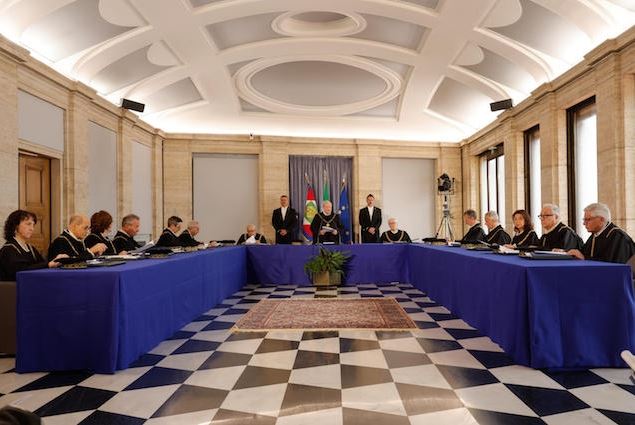
The sentence will arrive in about twenty days, but in the meantime a press release clarifies the substance of the Council’s decision on differentiated autonomy. In particular, the Constitutional Court considered «the question of constitutionality of the entire law on the differentiated autonomy of the ordinary Regions (n. 86 of 2024) to be unfounded», but instead considered «specific provisions of the same legislative text illegitimate in light of the Charter ».
«The Judges believe – we read in the press release – that the distribution of legislative and administrative functions between the different territorial levels of government, in implementation of the art. 116, third paragraph, must not correspond to the need for a distribution of power between the different segments of the political system, but must take place according to the common good of society and the protection of the rights guaranteed by our Constitution. To this end, it is the constitutional principle of subsidiarity that regulates the distribution of functions between the State and the regions. In this framework, differentiated autonomy must be functional to improve the efficiency of public apparatus, to ensure greater political responsibility and to better respond to the expectations and needs of citizens”.
In examining the appeals of the Regions of Puglia, Tuscany, Sardinia and Campania, the defenses of the President of the Council of Ministers and the acts of intervention ad opposition of the Regions of Lombardy, Piedmont and Veneto, «has recognized the unconstitutionality of the following aspects of the law:
1- The possibility that the agreement between the State and the region and the subsequent differentiation law transfer subjects or areas of subjects, where the Court believes that the devolution must concern specific legislative and administrative functions and must be justified in relation to the individual region, in light of the aforementioned principle of subsidiarity.
2 – The granting of a legislative delegation for the determination of the essential levels of services concerning civil and social rights (LEP) lacks suitable directive criteria, with the consequence that the substantial decision is placed back in the hands of the Government, limiting the constitutional role of the Parliament.
3 – The provision that a decree of the President of the Council of Ministers (dPCm) determines the updating of the LEP;
4 – The use of the procedure provided for by law no. 197 of 2022 (budget law for 2023) for the determination of the LEP with Prime Ministerial Decree, until the entry into force of the legislative decrees provided for by the same law to define the LEP;
5 – The possibility of modifying, by inter-ministerial decree, the rates of revenue sharing of state taxes, envisaged to finance the transferred functions, in the event of a discrepancy between the spending requirement and the trend of the same revenue; based on this forecast, inefficient regions could be rewardedi, who – after having obtained from the State the resources aimed at exercising the transferred functions – are not able to ensure the complete fulfillment of the same functions with those resources;
6- The fact that contributing to public finance objectives is optional, and not a duty, for the regions receiving devolution, with a consequent weakening of the bonds of solidarity and unity of the Republic;
7 – The extension of law n. 86 of 2024, and therefore of the art. 116, third paragraph, of the Constitution to the regions with special statutes, which instead, to obtain greater forms of autonomy, can resort to the procedures provided for by their special statutes.
Other points have been the subject of a constitutionally oriented interpretation, this means that only within the scope of this interpretation given by the Court can they be considered compliant with the Constitution.
In particular, the Court established that «the legislative initiative relating to the differentiation law should not be understood as reserved solely for the Government“, That “the differentiation law does not merely approve the agreement (“take it or leave it”) but implies the power of amendment of the Chambers; in this case the agreement may possibly be renegotiated”; that «the limitation of the need to predetermine LEP to some subjects (distinction between “LEP subjects” and “no LEP subjects”) must be understood in the sense that, if the legislator qualifies a matter as “no-LEP”, the related transfers cannot concern functions that concern services concerning civil and social rights»; That “the identification, through sharing of the revenue of state taxes, of the resources allocated to the transferred functions must take place not on the basis of historical expenditure, but rather taking as reference costs and standard needs and efficiency criteriafreeing up resources to be kept by the State to cover expenses which, despite the devolution, still remain the responsibility of the State”; that «the financial invariance clause requires that, at the time of the conclusion of the agreement and the identification of the related resources, the general framework of public finance, the trends of the economic cycle and compliance with Eurounitary obligations are taken into account».
The Court therefore passes the ball to Parliament, which has the responsibility «in the exercise of its discretion, to fill the gaps resulting from the acceptance of some of the questions raised by the appellants, in compliance with constitutional principles, in order to ensure the full functionality of the law» and specifies that it remains competent « to examine the constitutionality of the individual differentiation laws, should they be censored through appeal primarily by other regions or incidentally».








